Prof. Aldo Faisal
AI & Neuroscience, Department of Bioengineering
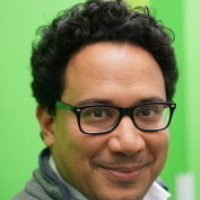 Professor A. Aldo Faisal is the Professor of AI & Neuroscience at the Dept. of Computing and the Dept. of Bioengineering at Imperial College London. He was awarded a UKRI Turing AI Fellowship for his work on Reinforcement Learning in Healthcare. Aldo is the Founding Director of the £20Mio. UKRI Centre for Doctoral Training in AI for Healthcare. He is the Elected Speaker of the Cross-Faculty Network in Artificial Intelligence representing AI in College on behalf of over 200 academic members. Aldo serves as an Associate Editor for Nature Scientific Data and PLOS Computational Biology and has acted as conference chair, program/area chair, chair in key conferences in the field (e.g. Neurotechnix, KDD, NIPS, IEEE BSN). In 2016 he was elected into the Global Futures Council of the World Economic Forum, and since then he won a number of research prizes and award such as the Toyota Mobility Foundation $50,000 Research Discovery Prize in 2018.
Professor A. Aldo Faisal is the Professor of AI & Neuroscience at the Dept. of Computing and the Dept. of Bioengineering at Imperial College London. He was awarded a UKRI Turing AI Fellowship for his work on Reinforcement Learning in Healthcare. Aldo is the Founding Director of the £20Mio. UKRI Centre for Doctoral Training in AI for Healthcare. He is the Elected Speaker of the Cross-Faculty Network in Artificial Intelligence representing AI in College on behalf of over 200 academic members. Aldo serves as an Associate Editor for Nature Scientific Data and PLOS Computational Biology and has acted as conference chair, program/area chair, chair in key conferences in the field (e.g. Neurotechnix, KDD, NIPS, IEEE BSN). In 2016 he was elected into the Global Futures Council of the World Economic Forum, and since then he won a number of research prizes and award such as the Toyota Mobility Foundation $50,000 Research Discovery Prize in 2018.
Prof. Aron Walsh
Materials Design, Department of Materials
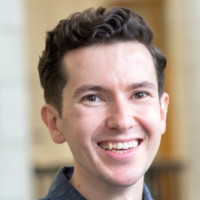 Aron Walsh is Chair of Materials Design in the Department of Materials at Imperial College London. His research combines computational technique development and applications at the interface between solid-state chemistry and physics. He was awarded the 2019 Corday-Morgan Prize for his contributions to computational chemistry. Aron is an associate editor for Journal of the American Chemical Society.
Aron Walsh is Chair of Materials Design in the Department of Materials at Imperial College London. His research combines computational technique development and applications at the interface between solid-state chemistry and physics. He was awarded the 2019 Corday-Morgan Prize for his contributions to computational chemistry. Aron is an associate editor for Journal of the American Chemical Society.
Dr Christopher Rowlands
Biophotonic instrumentation, Department of Bioengineering
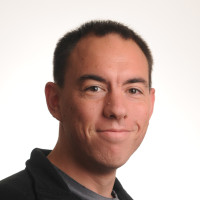 Dr Rowlands has a wide range of research interests based primarily on the development of high-throughput instrumentation to solve interesting problems in biology, chemistry and medicine. As an expert the development of optical systems he is interested in the integration of microfluidics and online analytical tools such as Raman microscopy, FTIR, UV / VIS, fluorescence and so on, as well as the development of novel new synthetically-flexible microfluidic devices.
Dr Rowlands has a wide range of research interests based primarily on the development of high-throughput instrumentation to solve interesting problems in biology, chemistry and medicine. As an expert the development of optical systems he is interested in the integration of microfluidics and online analytical tools such as Raman microscopy, FTIR, UV / VIS, fluorescence and so on, as well as the development of novel new synthetically-flexible microfluidic devices.
Prof. Christopher Tucci
Digital Strategy and Innovation, Business school
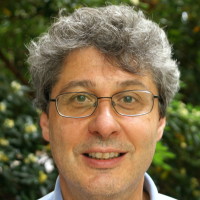 Christopher L. Tucci is Professor of Digital Strategy & Innovation at Imperial College Business School, where he directs the Centre for Digital Transformation. Professor Tucci held the Chair in Corporate Strategy and Innovation from 2003-2020 at EPFL and was Dean of the College of Management there from 2013-2018. In 2018, he was Visiting Thought Leader at CEIBS in Shanghai, China. He received the degrees of Ph.D. in Management from the Sloan School of Management, MIT; SM (Technology & Policy) from MIT; and BS (Mathematical Sciences), AB (Music), and MS (Computer Science) from Stanford University. He was an industrial computer scientist involved in developing Internet protocols and applying artificial intelligence tools in the 1980s. Professor Tucci teaches courses in Design Thinking, Digital Strategy, and Innovation Management. His primary area of interest is in how firms make transitions to new business models, technologies, and organizational forms. He also studies crowdsourcing, Internetworking, and digital innovations. He has published articles in, among others, Academy of Management Review (AMR), Strategic Management Journal, Management Science, Research Policy, Communications of the ACM, Strategic Entrepreneurship Journal, Academy of Management Annals, and Journal of Product Innovation Management. His article with Allan Afuah, “Crowdsourcing as solution to distant search,” won the Best Paper of 2012 for AMR. He has served in leadership positions in the Academy of Management and the Strategic Management Society.
Christopher L. Tucci is Professor of Digital Strategy & Innovation at Imperial College Business School, where he directs the Centre for Digital Transformation. Professor Tucci held the Chair in Corporate Strategy and Innovation from 2003-2020 at EPFL and was Dean of the College of Management there from 2013-2018. In 2018, he was Visiting Thought Leader at CEIBS in Shanghai, China. He received the degrees of Ph.D. in Management from the Sloan School of Management, MIT; SM (Technology & Policy) from MIT; and BS (Mathematical Sciences), AB (Music), and MS (Computer Science) from Stanford University. He was an industrial computer scientist involved in developing Internet protocols and applying artificial intelligence tools in the 1980s. Professor Tucci teaches courses in Design Thinking, Digital Strategy, and Innovation Management. His primary area of interest is in how firms make transitions to new business models, technologies, and organizational forms. He also studies crowdsourcing, Internetworking, and digital innovations. He has published articles in, among others, Academy of Management Review (AMR), Strategic Management Journal, Management Science, Research Policy, Communications of the ACM, Strategic Entrepreneurship Journal, Academy of Management Annals, and Journal of Product Innovation Management. His article with Allan Afuah, “Crowdsourcing as solution to distant search,” won the Best Paper of 2012 for AMR. He has served in leadership positions in the Academy of Management and the Strategic Management Society.
Dr Firat Guder
Department of Bioengineering
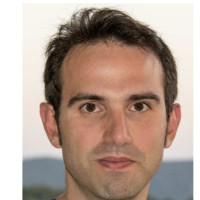 Dr Firat Güder is a senior lecturer in the Department of Bioengineering at Imperial College London. Firat and his team work in the interface of material science, electronics, chemistry and biology, focusing on the development of new materials and low-cost transducers to interface the physical, chemical and biological world around us with machines. Firat is passionate about solving problems in healthcare, agriculture and food systems. For more information on Güder Research Group please visit www.guderesearch.com.
Dr Firat Güder is a senior lecturer in the Department of Bioengineering at Imperial College London. Firat and his team work in the interface of material science, electronics, chemistry and biology, focusing on the development of new materials and low-cost transducers to interface the physical, chemical and biological world around us with machines. Firat is passionate about solving problems in healthcare, agriculture and food systems. For more information on Güder Research Group please visit www.guderesearch.com.
Prof. Geoff Baldwin
Synthetic & Molecular Biology, Department of Life Sciences
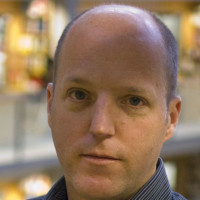 Prof. Baldwin is Professor of Synthetic & Molecular Biology at Imperial College London, he is Co-Director of the Imperial College Centre for Synthetic Biology and Director of the EPSRC Centre for Doctoral Training in BioDesign Engineering. He has spent his career at the interface of the physical and life sciences and has been working in synthetic biology since 2009. He has an active programme of research in DNA assembly, part characterisation, circuit design and implementation. These are being applied to in vivo approaches to directed evolution for the creation of new specificity and functionality for biosynthetic pathway optimisation and the development of integrated AI approaches for optimising within a biological design space.
Prof. Baldwin is Professor of Synthetic & Molecular Biology at Imperial College London, he is Co-Director of the Imperial College Centre for Synthetic Biology and Director of the EPSRC Centre for Doctoral Training in BioDesign Engineering. He has spent his career at the interface of the physical and life sciences and has been working in synthetic biology since 2009. He has an active programme of research in DNA assembly, part characterisation, circuit design and implementation. These are being applied to in vivo approaches to directed evolution for the creation of new specificity and functionality for biosynthetic pathway optimisation and the development of integrated AI approaches for optimising within a biological design space.
Graham Hewson
Head of Incubation and The Imperial Advanced Hackspace
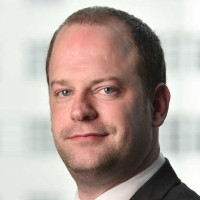 Graham Hewson is the Head of the Advanced Hackspace at Imperial College London. The Hackspace is the Colleges prototyping centre for students based on the White City Campus. Graham also is Head of Incubation and a Director of the United Kingdome Science Park Association.
Graham Hewson is the Head of the Advanced Hackspace at Imperial College London. The Hackspace is the Colleges prototyping centre for students based on the White City Campus. Graham also is Head of Incubation and a Director of the United Kingdome Science Park Association.
Dr Heather Battey
Statistics, Department of Mathematics
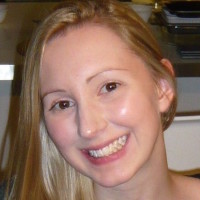 Heather Battey is a lecturer in the Department of Mathematics where she holds an EPSRC Early Career Research Fellowship. Her research interests are in statistical theory motivated by modern scientific applications, particularly statistical inference for interest parameters in the presence of a multitude of nuisance parameters. She is also interested in experimental design.
Heather Battey is a lecturer in the Department of Mathematics where she holds an EPSRC Early Career Research Fellowship. Her research interests are in statistical theory motivated by modern scientific applications, particularly statistical inference for interest parameters in the presence of a multitude of nuisance parameters. She is also interested in experimental design.
Prof. Rafael Calvo
Engineering Design, Dyson School of Design Engineering
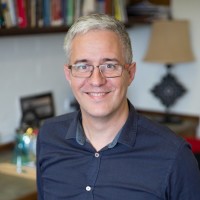 Rafael A. Calvo, PhD (2000) is Chair of Design Engineering at the Dyson School of Design Engineering, Imperial College London. He is also co-lead at the Leverhulme Centre for the Future of Intelligence, and co-editor of the IEEE Transactions on Technology and Society. Until 2019 he was director of the Wellbeing Technology Lab and of the Software Engineering Group that focuses on the design of systems that support wellbeing in areas of mental health, medicine and education. In 2015 Calvo was appointed a Future Fellow of the Australian Research Council to study the design of wellbeing-supportive technology.
Rafael A. Calvo, PhD (2000) is Chair of Design Engineering at the Dyson School of Design Engineering, Imperial College London. He is also co-lead at the Leverhulme Centre for the Future of Intelligence, and co-editor of the IEEE Transactions on Technology and Society. Until 2019 he was director of the Wellbeing Technology Lab and of the Software Engineering Group that focuses on the design of systems that support wellbeing in areas of mental health, medicine and education. In 2015 Calvo was appointed a Future Fellow of the Australian Research Council to study the design of wellbeing-supportive technology.
Prof. Ruth Misener
Computational Optimisation, Department of Computing
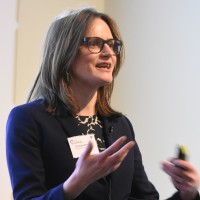 Dr Ruth Misener is a Professor in Computational Optimization in the Imperial College London Department of Computing. Ruth received an SB from MIT and a PhD from Princeton: both degrees are in chemical engineering. Foundations of her research are in numerical optimization algorithms. Applications include bioprocess optimization under uncertainty, petrochemical process design and operations, and explainable scheduling. Ruth's research team makes their software contributions available open source. Ruth received the 2017 Macfarlane Medal from the Royal Academy of Engineering and the 2020 Outstanding Young Researcher Award from the AIChE Computing & Systems Technology Division. Ruth is an associate editor for Computers & Chemical Engineering and INFORMS Journal on Computing.
Dr Ruth Misener is a Professor in Computational Optimization in the Imperial College London Department of Computing. Ruth received an SB from MIT and a PhD from Princeton: both degrees are in chemical engineering. Foundations of her research are in numerical optimization algorithms. Applications include bioprocess optimization under uncertainty, petrochemical process design and operations, and explainable scheduling. Ruth's research team makes their software contributions available open source. Ruth received the 2017 Macfarlane Medal from the Royal Academy of Engineering and the 2020 Outstanding Young Researcher Award from the AIChE Computing & Systems Technology Division. Ruth is an associate editor for Computers & Chemical Engineering and INFORMS Journal on Computing.
Prof. Thrishantha Nanayakkara
Design Engineering and Robotics, Dyson School of Design Engineering
 Thrishantha Nanayakkara is a Professor in Design Engineering and Robotics and the Director of the Morphlab at Dyson School of Design Engineering, Imperial College London. He takes a soft robotics approach to test questions on embodied intelligence of biological counterparts. He is the current speaker of the Imperial Robotics Forum, and a founding executive committee member of the UK RAS Strategic Task Group on Soft Robotics. He is in the editorial board as a special issue editor or associate editor or Regional Chair of flagship IEEE robotics publications such as IJRR, IEEE RAL, RSS, ICRA, IROS, RoboSoft. For more information, please visit https://www.imperial.ac.uk/morph-lab.
Thrishantha Nanayakkara is a Professor in Design Engineering and Robotics and the Director of the Morphlab at Dyson School of Design Engineering, Imperial College London. He takes a soft robotics approach to test questions on embodied intelligence of biological counterparts. He is the current speaker of the Imperial Robotics Forum, and a founding executive committee member of the UK RAS Strategic Task Group on Soft Robotics. He is in the editorial board as a special issue editor or associate editor or Regional Chair of flagship IEEE robotics publications such as IJRR, IEEE RAL, RSS, ICRA, IROS, RoboSoft. For more information, please visit https://www.imperial.ac.uk/morph-lab.
Contact us
Email us at DigiFAB@imperial.ac.uk
Twitter @ImperialDigiFAB
Find us at
DigiFAB Institute
Imperial College London
Molecular Sciences Research Hub
White City Campus
Wood Lane | W12 0BZ | UK